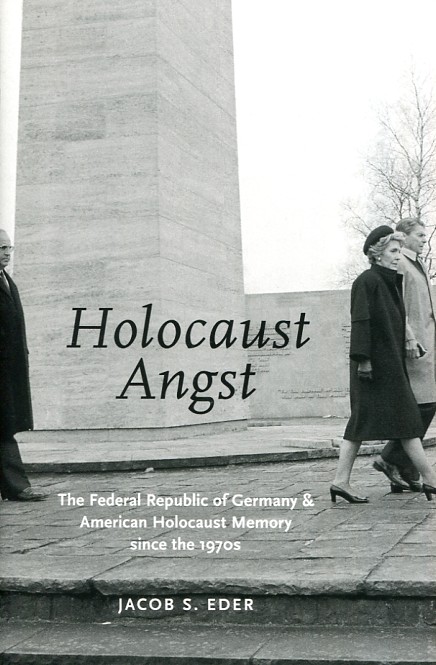Holocaust angst
the Federal Republic of Germany and american holocaust memory Since the 1970s
- ISBN: 9780190237820
- Editorial: Oxford University Press
- Fecha de la edición: 2016
- Lugar de la edición: Oxford. Reino Unido
- Encuadernación: Cartoné
- Medidas: 22 cm
- Nº Pág.: 293
- Idiomas: Inglés

This book explores how Germans perceived and reacted to how Americans publicly commemorated the Holocaust. It argues that a network of mostly conservative West German officials and their associates in private organizations and foundations, with Chancellor Kohl located at its center, perceived themselves as the "victims" of the afterlife of the Holocaust in America. They were concerned that public manifestations of Holocaust memory-such as museums, monuments, and movies-could severely damage the Federal Republic's reputation and even cause Americans to call into question the Federal Republic's status as an ally. From their perspective, American Holocaust memorial culture constituted a stumbling block for (West) German-American relations since the late 1970s. The book refers to their fears, catalyzed by these perceptions, as "Holocaust Angst." Providing the first comprehensive, archival study of German efforts to cope with the Nazi past vis-a-vis the United States up to the 1990s, this book uncovers the fears of German officials-some of whom were former Nazis or World War II veterans-about the impact of Holocaust memory on the reputation of the Federal Republic and reveals their at times negative perceptions of American Jews. Focusing on a variety of fields of interaction, ranging from the diplomatic to the scholarly and public spheres, the book unearths the complicated and often contradictory process of managing the legacies of genocide on an international stage. Over the course of the 1980s and 1990s, West German decision makers realized that American Holocaust memory was not an "anti-German plot" by American Jews and acknowledged that they could not significantly change American Holocaust discourse. In the end, German confrontation with American Holocaust memory contributed to a more open engagement on the part of the West German government with this memory and eventually rendered it a "positive resource" for German self-representation abroad.






